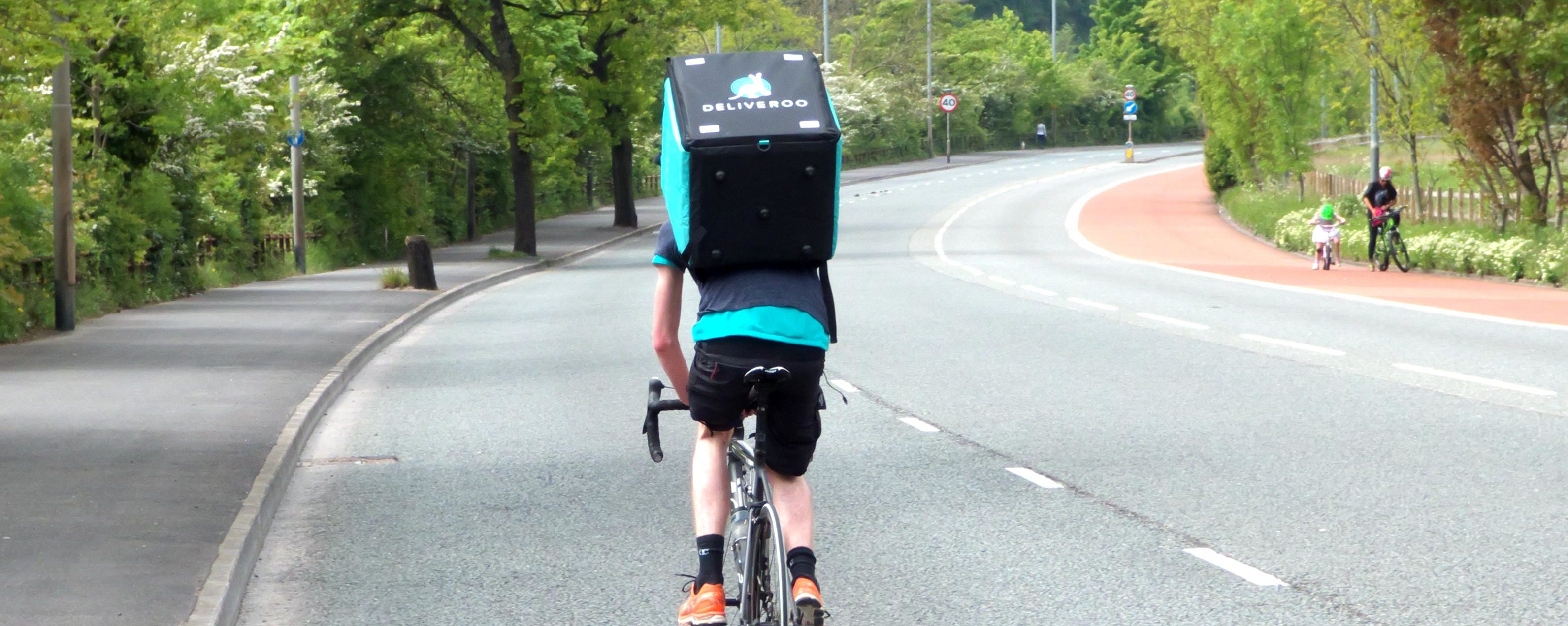The Deaths of Gig Workers Are Not Freak Incidents, but the Result of a Brutal Business Model
by Phil Jones
14 January 2020

The gig economy has begun the new decade with yet another death. On Friday 3 January, an Uber Eats and Deliveroo rider was stabbed after an altercation with a car driver in what has become an all too familiar scenario over the last few years.
Colleagues of the rider have since come forward as victims of similar attacks, and only last May, an Uber Eats driver was beaten to death while attempting to stop his scooter from being stolen. More prominently, Don Lane, the courier who inspired Ken Loach’s film, Sorry We Missed You, died after missing crucial medical appointments to work shifts that, had he cancelled, would have led to significant financial penalties by his employer, courier service DPD. Stories of homeless Deliveroo riders, fatal crashes, suicides, and other violent incidents are now the norm in the so called gig economy. Somewhat staggeringly, the Transport Workers’ Union of Australia found that nearly 50% of Deliveroo riders had been injured on the job or knew another rider who had been.
These events are not an aberration. Rather, the human cost is inscribed into the very DNA of companies that falsely categorise their workers as ‘self-employed’. This allows companies like Uber and Deliveroo to shirk the standard responsibilities associated with being an employer, while denying their workforce the basic protections and rights that go with ‘worker’ status, such as a minimum wage, rest breaks, and sick and holiday pay.
Given more than a second’s thought, it seems obvious. If Deliveroo offered sick pay, riders would no longer be compelled to work when they’re ill and potentially unfit to be on the road; a guaranteed hourly wage would remove the worker’s need to push themselves well beyond safe limits just to make enough money each shift; paid rest breaks and holidays would curb overwork and exhaustion; while a company bike or scooter with insurance would stop riders from having to rashly defend their own property from attackers.
But it’s not just the lack of protections that create dangerous working conditions, the companies’ algorithmic management systems are specifically designed to be inflexible to the changing psychological and physical limits of individual workers. As ex-Deliveroo rider, Callum Cant, describes in his book Riding for Deliveroo, information about the delivery process is assigned step-by-step, often meaning that workers have no idea what or where their next delivery will be, making it less likely they will turn down jobs that are particularly challenging or long. The algorithm is programmed to overlook, say, whether a worker has completed many long-distance deliveries over the course of a single shift, therefore making overwork, exhaustion and accidents far more likely.
That fatalities in the gig economy appear to be increasing is hardly surprising, not least because the number of people working for platforms such as Uber and Deliveroo is growing rapidly. Between 2016 and 2019, the number of people accessing labour platforms rose from 4.7% of the adult population to 9.6%.
What has caused this staggering rise? It’s fair to say the recovery to the labour market since the 2008 crash has been pretty much non-existent. Wages have stagnated, productivity is abysmally low, precarity is on the rise, and Brexit hovers over jobs and rights like an ominous grey cloud. Unemployment may be 3.8%, but this apparent 45 year low disguises the fact that in the decade after the crash employment only recovered due to the ascent of zero hour contracts and the growth of companies like Deliveroo and Uber.
Without significant pushback from workers and politicians, this crisis of work is only set to get a whole lot worse.
Yet, 2019 represented a watershed moment in both worker and government opposition to the gig economy. Continuing strike actions that began in 2016, Deliveroo riders struck numerous times across various locations in the UK; in France, riders went on strike and implored customers to boycott the platform; while Uber drivers went on strike across Britain to protest shoddy pay and conditions.
At the state level, California passed a landmark bill back in September, only now coming into effect, which prevents companies from falsely classifying workers as ‘independent contractors’, with other states like New Jersey, New York and Illinois preparing similar legislation. Similarly, both Labour’s and the Liberal Democrat’s manifestos contained pledges to remove bogus ‘self-employment’ status. In London, TFL have refused to grant Uber a new license on the basis that the company has placed their passengers at risk.
This year has not got off to such a great start. A Tory government, bolstered by a thumping majority, means the next five years are set to be a relentless challenge for UK workers. This government will have little appetite to implement legislation such as that proposed in the Labour or Lib Dem manifestos, let alone tackle the more general crisis of work affecting the UK. The Tories’ plan to ban all rail strikes is undoubtedly a not so veiled threat to other sectors of the UK economy.
Workers will have to take up the fight for themselves by joining the Independent Workers union of Great Britain (IWGB), a union that has not only taken on the bosses of the gig economy, but repeatedly won. Workers for Deliveroo, Uber and countless other companies must continue to push for the ‘worker’ status that couriers for the company Hermes won back in 2018 with the support of the IWGB. It’s that, or continue to work in an economy where deaths are increasingly the norm.
Phil Jones is a research affiliate at the Autonomy think tank and is currently writing a book for Verso titled ‘Work Without the Worker’.